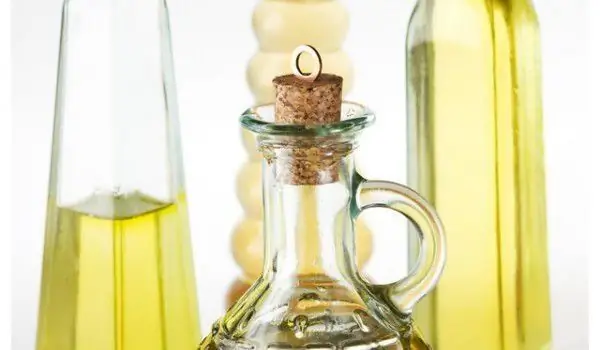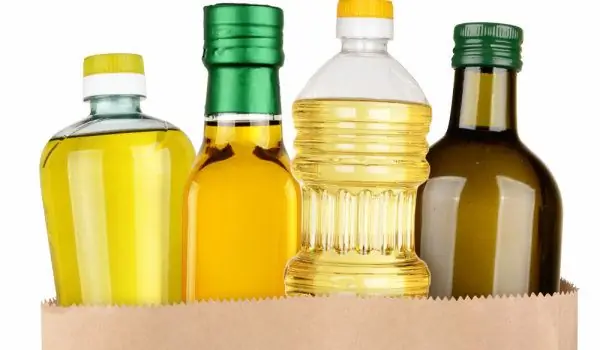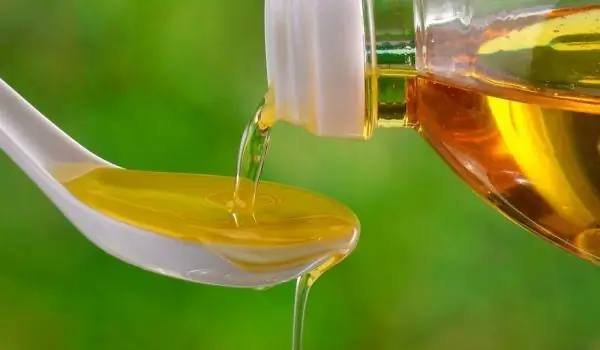2025 Author: Jasmine Walkman | [email protected]. Last modified: 2025-01-23 10:18
This time we will address a very important issue that you have certainly all encountered - the rancidity of the oils. We will learn about the ways of spoilage of oils, we will look at how we can slow down fat oxidation and how to recognize changes in oil quality.
The rancidity of cooking oils (rancidity) is the result of a chemical process in which a reaction occurs between a fatty acid and a free radical, usually singlet oxygen. Some microorganisms can speed up the process with enzymes called lipases. Their activity is that they break down fatty acids.
The rate of oxidation depends mainly on the number of unsaturated bonds - the more bonds, the faster the oxidation. Oxidation is also accelerated by oxygen, heat, light and heavy metals (iron, copper).
Oils that contain more unsaturated fatty acids and are therefore liquid will turn rancid faster, and those that contain more saturated fatty acids will not. Example: Raspberry oil, which contains a lot of linoleic and linolenic fatty acids, has a shelf life of only a few months, while cocoa or coconut oil can be stable and of good quality for up to 2 years.
How to recognize changes in oil quality?
The spoilage of vegetable oils is a complex process. It is easy to find that our oil has lost its quality. The spoilage of vegetable oils is recognized mainly by the change in color, smell and taste.
How to prevent oil rancidity

The rancidity of the oils it cannot be prevented, but it can slow down this process. The degree of oxidation depends on the method of obtaining the oil, the composition of the fatty acids and the storage of the oil.
Oxidation can be delayed by preventing the oil from coming into contact with air (tightly closed package) and by oil storage in the dark, cool and dry place.
It should not be stored in metal containers or metal utensils should be used when handling it, as this may accelerate oxidation due to the presence of metal ions.
Recommended:
How To Store Olive Oil And Vegetable Oil

The oil is stored quite a long time thanks to its factory packaging. It is sold with a tightly closed lid and thanks to this it can retain its qualities for two years. Oil bottles should be stored in a cool dark place. It is better to store oil that is sealed in glass rather than plastic bottles.
Okra Oil Replaces Coconut Oil

Okra (Abelmoschus esculentus, Hibiscus esculentus) is an annual herbaceous plant, reaching a height of nearly one meter. The use of okra is broad-spectrum. The fruits can be eaten fresh or dried and added to various dishes, soups or sauces.
Olive Oil Versus Rapeseed Oil: Which Is Healthier?

Rapeseed oil and olive oil are two of the most popular cooking oils in the world. Both are touted as heart healthy. However, some people wonder what the difference is and what is healthier. What is rapeseed and olive oil? Rapeseed oil is produced from rapeseed (Brassica napus L.
Cook With Olive Oil To Prevent Stroke

Olive oil is an excellent alternative to cooking oil. Besides being delicious, it has irreplaceable benefits for the body. Regular consumption of olive oil reduces the risk of stroke by nearly 50%. Scientists from France came to this conclusion after conducting a large-scale study.
Castor: Corn Oil Was More Useful Than Olive Oil

Corn oil is proving to be more valuable for health than the olive oil, which is said to be the most useful fat, reports Eurek Alert. Corn oil lowers cholesterol levels more successfully than cold-pressed olive oil, say researchers who conducted the study.

